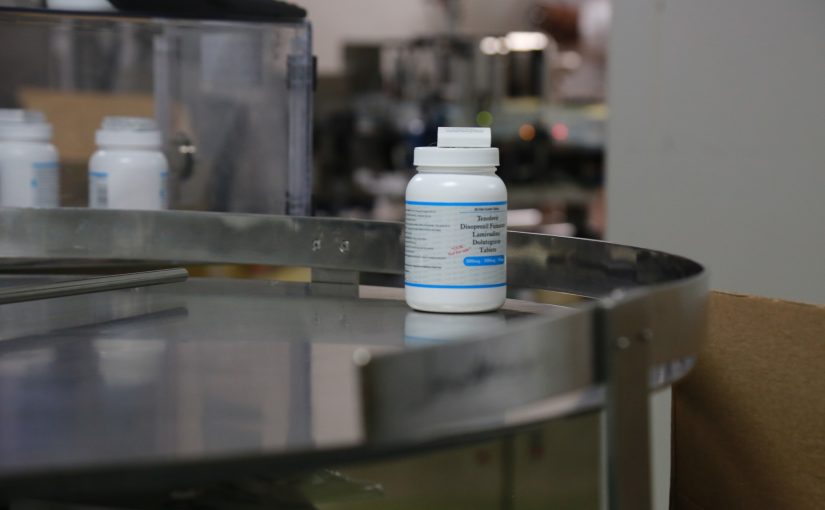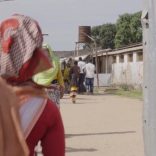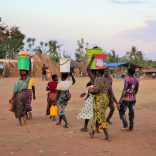Mozambique: Beware of dubious job offers on social media - Cabo Delgado governor
First-ever procurement of African-made HIV treatment for Mozambique

File photo: Unitaid
Mozambique will receive the first doses of a new-generation, low-cost antiretroviral drug for HIV infection, produced for the first time in Africa, according to the World Health Organization (WHO), which highlighted the milestone.
According to information from the WHO consulted by Lusa, this is a partnership between several countries and manufacturers who, with support from the Global Fund, will purchase the antiretroviral drug TLD produced by the laboratories of Universal Corporation Ltd (UCL), a Kenya-based pharmaceutical company.
In 2023, UCL became the first African manufacturer to receive WHO prequalification to produce tenofovir disoproxil fumarate, lamivudine and dolutegravir (TLD), a WHO-recommended first-line antiretroviral therapy for HIV infection.
“The procurement of the African-manufactured first-line HIV treatment by the Global Fund for Mozambique is a great milestone towards strengthening supply chain systems in Africa. This will contribute to better health outcomes for people living with HIV who need uninterrupted medicine supplies,” said Dr Meg Doherty, Director of WHO’s Global HIV, Hepatitis and STIs [Sexually Transmitted Infections[ Programmes.
The Global Fund’s procuring UCL’s TLD, in unspecified quantities, for Mozambique marks the first time TLD has been manufactured on African soil, but the WHO warns that “production alone isn’t enough”.
“To ensure sustainable and resilient supply chains, critical enablers are needed, such as advanced market commitments, fair procurement policies and continued technical support. WHO shares the vision of a world where every region has the capacity to secure its own health. Locally manufactured TLD is a major step towards that goal, but more action is needed,” the WHO statement reads.
WHO also advocates that African manufacturers “should be prioritized in global supply chains, and guaranteed equitable access to health technologies that meet quality, safety and efficacy/performance standards”.
More than 40% of every 1,000 inhabitants in Mozambique have HIV/AIDS, but the Mozambican government aims to reduce this incidence to less than half, as outlined in the Government’s Five-Year Program (PQV) 2025-2029.
According to the document, reported in May by Lusa, the strategy assumes an HIV/AIDS incidence rate of 43% per 1,000 inhabitants. However, the PQV sets a goal of reducing this incidence rate to 13% per 1,000 inhabitants by 2029, with a clear focus on youth.
The WHO notes that “while Sub-Saharan Africa bears the highest HIV burden globally and is home to almost 65% of all people living with HIV, for decades, access to HIV treatment across the African region depended almost entirely on imports of lifesaving drugs and diagnostic tests manufactured thousands of miles away”.
“Local production of quality-assured health products is an urgent priority. With every African manufacturer that meets WHO prequalification standards, we move closer to a more self-reliant, resilient, and equitable health system. Regulation and prequalification are not just technical processes; they are catalysts for health sovereignty and timely access to lifesaving medicines and diagnostics,” said Dr Rogerio Gaspar, WHO Director for Regulation and Prequalification.
The organization also warns that HIV testing “is a critical health service and a vital gateway to both prevention and treatment”, but that, “with current shifts in donor funding, many countries are facing financial strain, putting testing programs at risk”.
The Nigerian company Codix Bio therefore received a license from the WHO to manufacture rapid diagnostic tests (RDTs) for HIV. “This new local manufacture of HIV RDTs will improve access to affordable diagnostic tests and help mitigate disruption of HIV testing services,” the WHO notes.
UN News: Africa’s push for HIV independence advances with first procurement of locally made medicineshttps://t.co/kfWKD3ZWzS#news #health #medicine #Africa #UN #news #Healthcare
— we_consult_international (@WeamSafwat) August 3, 2025












Leave a Reply
Be the First to Comment!
You must be logged in to post a comment.
You must be logged in to post a comment.